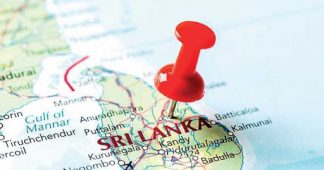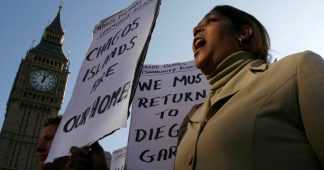By Lasanda Kurukulasuriya
The government’s recent move to do away with an important land circular, announced by the Cabinet Spokesman,Minister Bandula Gunewardena on 02.07.20, has opened up a can of worms that cantunnel into many areas of government policy. Circular 5/2001,issued in August 2001 by the Ministry of Forest Resources and Environment at the time, was intended to protect hundreds of thousands of acres of forest cover that were not regulated under existing Acts of Parliament by bringing them under the Forests Department.With the impending revocation of the circular, these forests will lose this protection and revert to the control of District and Divisional Secretaries, who will not be bound by the strict conditions spelt out for the release of these lands for ‘other purposes.’
The rationale given by the Cabinet Spokesmanwho claimed that activities of chena cultivators were being hampered by the circular,is extremely disingenuous. Itpresents the revocation of circular 5/2001 as a move to help poor farmers, whereas it is part of a much larger ongoing project that seeks to do just the opposite – by releasing land to private investors for large scale commercial agriculture. Thisis a policy that has long been pushed by the World Bank and western governments, that many analysts say will harm the interests of Sri Lanka’s farmers, who are mainly smallholders. The push to encourage agri-business comes at a time when deforestation has already reached alarming proportions in Sri Lanka. Environmentalists have with one voice deplored the move to do away with circular 5/2001.
It is now clear that the objective of opening the flood gates to make land readily available to serve foreign capital, is embedded in many other projects touted as‘development.’ A case in point is the Millennium Challenge Compact (MCC) which, in the US ambassador’s own words, is intended “to help the government to identify which state lands are underutilised and available for investment …”
Driving dispossession
A new reportreleased mid July by a US think tank, the Oakland Institute,identified the United States as “a key player in in an unfettered offensive to privatize land around the world via US blockchain corporations, government agencies, and the World Bank.” Sri Lanka is one of the six case studies in the report titled Driving Dispossession: The Global Push to “Unlock the Economic Potential of Land.”It warns that the compact between Sri Lanka and the United States Millennium Challenge Corporation (MCC) “could potentially shift millions of hectares of land into private control.”
According to Frederic Mousseau, its lead author andPolicy Director of the institute,“In Sri Lanka, the Millennium Challenge Corporation, a US government entity, is targeting state land—it intends to map and record up to 67 percent of the country to “promote land transactions that could stimulate investment and increase its use as an economic asset.”
In a statement Mousseau goes on to say that“Governments are being pushed to adopt the Western notion of private land ownership to give corporations access to natural resources—land, water, and minerals—just the opposite of the drastic shift we need to win the struggle against climate change.” The report’s other five case studies are Ukraine, Zambia, Myanmar, Papua New Guinea and Brazil.
Moves underway
There has been a public outcry against any move to sign the MCC – which got cabinet approval under the previous government. But there is less awareness that the process of transformation sought by the agreement – through introduction of new laws, amendments to existing laws and policy shifts – is already underway. A case in point is the State Land (Special Provisions) Bill, which would have fulfilled a pre-condition of the MCC if not for a timely Supreme Court ruling which blocked its passage.
Revoking circular 5/2001 is but one point in the trajectory of a process that exploits our natural resources, says environmentalist Sajiwa Chamikara, among the first to sniff out the imminent move. This did not come out of the blue, but is part of a carefully planned strategy,he said. World Bank reports of 1996 and 2015 clearly state that laws must be changed to introduce commercial agriculture, and a Land Ordinance of 2014 was amended in 2017 to enable foreigners to buy land, he pointed out. “It is a step-by-step process, and revoking circular 5/2001 is yet another step.”If protests were of no avail he saidenvironmentalists could challenge the move in court.
The FTA with Singapore too provides for land acquisition according to Chamikara, who is Environment and Legal Officer of MONLAR (Movement for National Land and Agricultural Reform). He said 62,500 acres earmarked for sugar cane cultivation under this FTA, lie in areas protected by circular 5/2001.And Chinahas sought 15,000 acresfor industrial zones in Hambantota and Moneragala. He said these projects need to be challenged.
In the Northern Province too ‘the difficulty of obtaining suitable land to commence business operations’ was identified as the main constraint for investors, in a recent study by Ernst & Young. “Owing to the dense forestry in the Northern Province, a significant portion of the land comes under the purview and protection of the Department of Wildlife Conservation and the Department of Forestry of Sri Lanka” the study is reported to have said.
Policy ambiguity
Around the time of the cabinet decision relating to circular 5/2001, president Gotabaya Rajapaksa had also instructed officials to speed up the process of digitizing land transaction records (‘e-land registration’). Those conversant with this subject warn that this program dating back to the 1998 ‘Bimsaviya’ Act, is fraught with danger, as the records once digitised cannot be changed or challenged in court. “Once your name is on the title register to a property, you are the legal owner even if you acquired the property through fraud. It is a State-backed guarantee that the owner is genuine” wrote Priyanga Boschmans, a barrister of The Honourable Society of the Middle Temple and a solicitor of the Supreme Court of England and Wales, in ‘A critical appraisal of Bimsaviya’ (Daily Mirror, 07.12.19). Part of the MCC’s funds are for ‘cadastral mapping’ and surveying required for digitizing a mega-number of land title documents.
It is a puzzle as to why President Rajapaksa, who has shown readiness to meet with various professional groups to discuss issues relating to government policy, has not met with environmentalists, who are deeply troubled by these developments. There is a strong thread running through the SLPP’s 2019 presidential election manifesto that emphasizes the need to protect national resources. It decried “foreigners being able to buy lands, a scarce resource, without any hindrance” (page iii). It pledged to “take proactive measures to increase national forest cover by 30% (page 64). It said the main aim of its economic policy was to uplift the farmers. But a clear statement on land policy is conspicuous by its absence.
The January announcement that the new government has decided to integrate elements of the the National Physical Plan 2017 – 2050 (NPP) in its policy declaration (‘Vistas of Prosperity and Splendour’) createdfurther ambiguity regarding government policy on land. This writer has, in previous columns, shown that there is a nexus between the NPP and the MCC (‘All is not Wells Part I: Nexus between MCC and National Physical Plan – http://www.dailymirror.lk/opinion/All-is-not-Wells/172-183495(DailyMirror 21.02.20); ‘Mega Land grab imminent?’– http://www.island.lk/index.php?page_cat=article-details&page=article-details&code_title=205229 (The Island 03.06.19). This ambiguity would be exacerbated by revocation of circular 5/2001.
With farmers’ woes having figured prominently in President Rajapaksa’s meetings with the public across the country ahead of the general election set for 5th August, it may be predicted that controversies relating to land will take centre stage in the political arena, in the years ahead.










